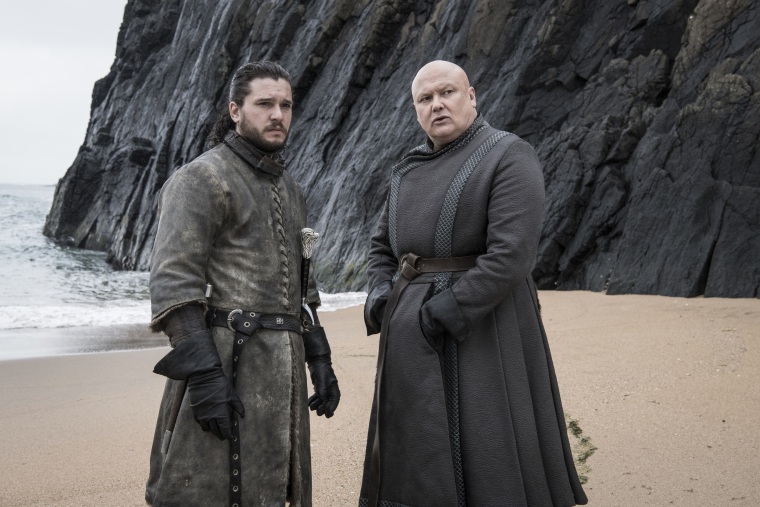Fans are waiting impatiently to find out who ultimately will win the titular "Game of Thrones," but some new research indicates who’s going to lose: Bosses, come Monday morning when everyone is figuratively or literally checked out.
The end of the long-running HBO series is expected to set viewing records. Last Sunday, 12.5 million watched the second-to-last episode when it aired, and a total of 18.4 million watched it across all HBO platforms including HBO GO and HBO NOW; an average of 43 million people per episode have watched the final season of the fantasy saga, HBO said. The actual number is probably even higher, given that "Game of Thrones" is one of the most-pirated TV shows.
A survey conducted by the Harris Poll for The Workforce Institute at Kronos Incorporated among working adults who are scheduled to work either Sunday night or Monday morning found that 56 percent of respondents who said they plan to watch the finale on Sunday acknowledged that their productivity would be affected. More than one in five admitted they planned to take a vacation day, personal day or call in sick on Monday.
“People have lives outside of work,” said Joyce Maroney, executive director of The Workforce Institute at Kronos, and employees might not be as worried about a last-minute absence with an unemployment rate of less than 4 percent.
If people don’t show up, this can be a headache — and an added expense — for businesses, Maroney said. “Absenteeism is one of the business issues we’ve been looking at for a long time,” she said. “Unplanned absenteeism can have a pretty significant impact on the workplace,” she said, especially in fields where working from home isn’t an option.
Over the last season alone, Thrones has cost employers $3.31 billion in lost productivity, according to research by executive outplacement firm Challenger, Gray & Christmas.
“It’s really spread beyond the normal realm of television,” said the company’s vice president, Andrew Challenger. “Fans are pretty dedicated, and they’re certainly going to be talking about the final episode on Monday morning.”
Challenger said it would be difficult — and counterproductive — for employers to try and police or quash Thrones-related chatter. “Generally, with these types of distractions in the workplace, we think they’re really difficult for employers to combat. An if-you-can’t-beat-em-join-em approach tends to be best in these type of scenarios,” he said. “We live in an age of distraction.”
To some extent, Challenger said, corporate America brought this on itself, as technology has blurred the line between people’s personal and professional lives. “When employers expect their employees to still get emails on their phone and be responding at 9 o’clock at night or 6 in the morning, those traditional barriers have already been broken down,” he said.
Instead, Challenger said businesses should take advantage of the silver lining brought about by the inevitable drop in Monday morning productivity as employees debate the ending. Unlike big sporting events such as the Super Bowl or March Madness — other notorious workday productivity zappers — Challenger said Thrones’ broad fan base means that people who aren’t drawn into Monday-morning-quarterbacking might spend the day after the finale talking about dragons or direwolves.
“It’s a different audience in a lot of ways, which is interesting,” he said. “It’s a different group of people, [so] employers can get people from different departments talking about something other than daily business items. That’s actually great for culture.”
To take advantage of morale-boosting camaraderie, Challenger said that he knew of offices (his included) holding pools to pick the “winner” who will end up on the show’s Iron Throne.
“People are incredibly invested in the outcome,” he said. “It’s a fun way to get some of the magic of a huge hit TV series into the workplace.”
